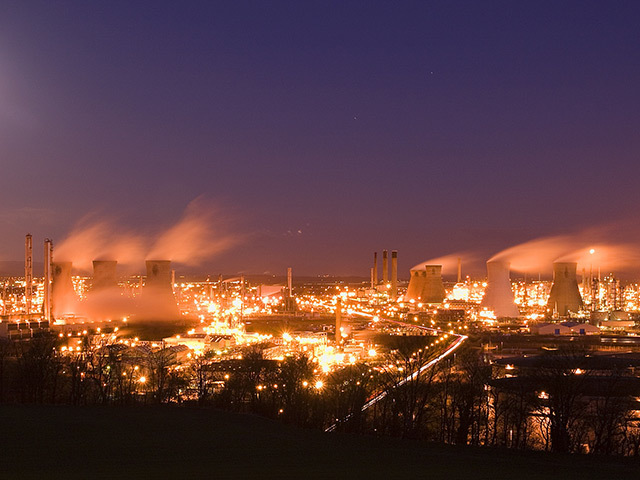
More than 80 North Sea fields producing nearly half the UK’s oil could be forced to shut down if the owner of the Grangemouth refinery decides to close the plant for good.
Management and unions failed yesterday to reach a deal that would lead to the plant being fired up again.
Ineos said it would have restarted operations at the site yesterday if Unite had given the company an assurance of no further industrial action this year, with “no conditions, no strings attached”.
But it claimed the union had refused that offer.
Ineos said the row had inflicted “significant further damage” on the company as it grappled with the future of a site that was already “financially distressed”.
“Grangemouth is shut down and will remain shut down,” Ineos said.
Bosses and shareholders will discuss the refinery’s future on Tuesday.
Professor Alex Kemp, of Aberdeen University, an expert on oil economics, said 300,000 barrels of oil a day – 40% of North Sea production – flowed through Grangemouth.
A total of 84 North Sea fields use the plant and Prof Kemp said operators would seek to export the oil through BP’s Kinneil terminal, near Grangemouth, while the Ineos plant was closed. But this terminal relies on Grangemouth for its power and steam and, while the power could be sourced elsewhere, such as the national grid, steam would be harder to find.
Asked what would happen if no alternative could be found, he said: “They would have to shut in.”
BP insisted yesterday it was business and usual.
Jim Ratcliffe, chairman of Ineos and its biggest shareholder, said last month the company was considering closing the plant because of rising costs and the decline in production of gas.
First Minister Alex Salmond has urged both sides to settle the dispute – agreeing that the future of the refinery is at risk.
“If we can get the plant started and working again, that would be a better atmosphere perhaps to have another try at completing this final mile of negotiations,” he said.
“However, the alternative is also the case. If the plant stays down and we stay in the war of words, the exchange of press releases, interviews and tweets, then there is a risk that the situation will deteriorate further.
“And the fundamental risk is the future of the Grangemouth plant.”
Recommended for you
